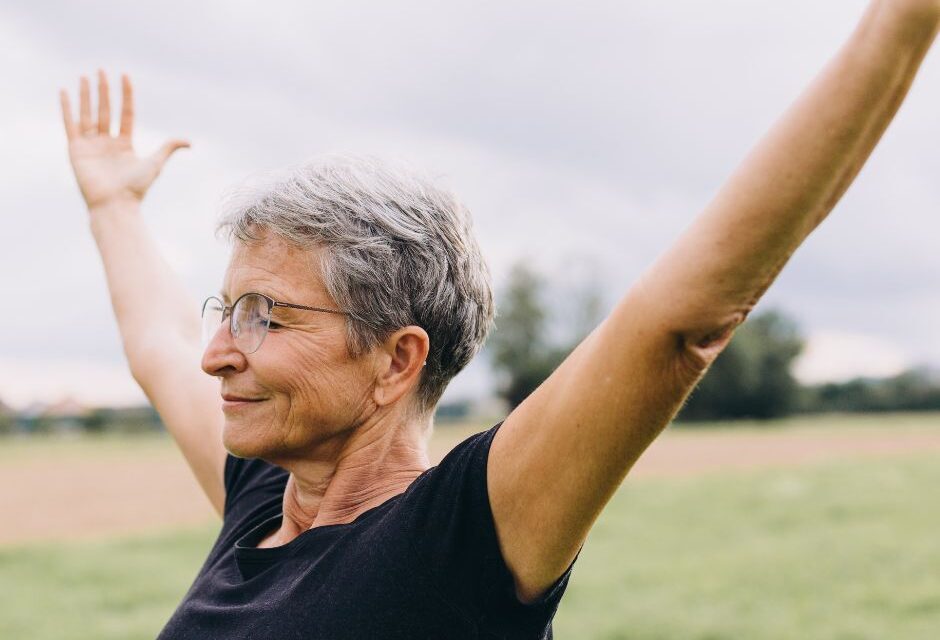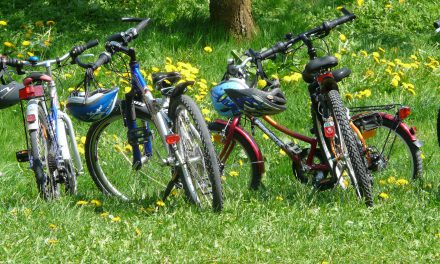Ageism – something that is so embedded into our society, we might not even notice our own ageist beliefs.
From thinking we cannot wear something because we’re ‘too old’ for it, to making a mistake and blaming it on a ‘senior moment’. Ageism can happen in obvious ways, but also in smaller, more subtle day-to-day interactions.
Most folks don’t even realise the things they say, and think could be ageist.
What is Ageism?
On the Ageing Without Limits website, it states that ageism:
“Is the negative treatment, stereotyping, prejudice, and/or discrimination directed toward a person because of their age. It affects people of all ages, but its damaging impact is often felt most strongly as we get older”.
Ageism can appear in our conversations, beliefs, and be widespread in the media and television. The mass media tend to characterise older people based on stereotypes or association with decline or fragility.
It is important to be aware of how the media fuels negative views about older people and ageing. For so many of us, ageing is a privilege and something to look forward to, despite what you may read or hear. An article published by the Centre for Ageing Better details the media’s use of negativity around ageing, read it here.
Often, you’ll hear older people referred to as ‘dear’ or ‘love’, and while this can be a term of endearment, it can also be problematic, as the tone suggests that the person is fragile or requires extra care.
Let’s challenge perceptions
The Your East Sussex team got together and discussed their perceptions and experiences of ageing.
Saffron commented that she notices she groans when she gets up and down, but often doesn’t need to. After reading Davina McCalls’ Menopausing book, she decided she was going to refrain from doing it unless needed.
By resisting the urge to resign herself to being incapable, Saffron has changed her mindset and potentially added 7 years to her life! (In a recent study, it was discovered that resigning ourselves to old age can potentially take 7 years off your life!)
Suzi added that she views ageing as a privilege; it’s a wonderful thing to get old and experience life!
Other team members commented that ageing is exciting, each new year is a new chapter, and something to be positive about.
Ageism is ingrained in our society and conversations as something negative, but what about if we challenged those ideas to something more positive?
Flip the script and change the narrative
As well as discussing ageing, the YES team also brainstormed some positive versions of everyday negative ideas we hear about ageing.
For example, ‘I’m too old to wear that’ can be changed to ‘I love the colour of that top, I’m going to wear it with my new skirt!’.
‘I’m having a senior moment’ can be switched to ‘I’m having a forgetful moment’.
In my experience, I’ve heard people complain with each passing birthday that ‘they’re getting so old’, as if it’s a bad thing. But is it a bad thing? With each year that passes, I only seem to gain more.
More wisdom, more knowledge, more patience, more curiosity. Ageing makes life richer, with more stories to tell, evidence of life’s memories etched on my face, and experiences documented on my body.
Be part of the change
Ageing is part of life, and something we will hopefully all experience.
Regarding ageing as a negative thing and holding ageist beliefs creates harm. It can make people feel unimportant, and on a societal level, it can mean we don’t prioritise or invest in ways to help people experience good health and be treated with respect as we grow older.
By learning about ageism, we can be aware of when it is happening and work to actively challenge it.
The Age Without Limits website advises that once you’ve noticed ageism, you can challenge it by:
- Having conversations – talk about ageing and ageism at home, work and in your community. Listen to other people’s experiences
- Learning – learn more about how ageism affects people’s lives every day, from work to health to hobbies and relationships
- Changing our language – avoid using phrases or stereotypes about ourselves and others that are negative about older people. Words can seem small, but they have a powerful impact
- Sharing and commenting – use a poster, a postcard or social media posts to get more people thinking and talking about this issue. Follow, like and share content that challenges ageism. You can also follow a more diverse range of content creators who aren’t just your age
- Getting older people represented – call on the media and advertisers to show people of all ages fairly and avoid harmful stereotypes
Actively working to change our embedded beliefs takes time and effort. But small changes can have big impacts. It’s not about being perfect, it’s about learning and being better informed than we were yesterday.
Full of Life Festival
Each year, East Sussex County Council works with East Sussex Seniors’ Association (ESSA) to organise a festival of events across the county to celebrate Older People’s Day.
Older People’s Day takes place on 1 October, but there is a two-month-long programme of activities taking place throughout September and October.
You can find these activities and events listed in the free ‘Full of Life’ brochure, which is available from libraries, council offices and leisure centres.
Visit the Full of Life Festival webpage for full information.
Looking after ourselves into old age
A great way to look after ourselves as we age is to exercise. Not only does it have numerous health benefits, such as reducing the risk of heart disease, stroke, and improving flexibility. It can also improve mental health as physical activity releases endorphins, which can reduce depression, anxiety, and boost overall mood.
Exercising, whether in a class or going for a walk, increases social interaction, which can help combat feelings of loneliness and isolation.
Exercise doesn’t have to look a certain way for you to feel the benefits. It can be a Salsa class, a sweaty workout at the gym, or a gentle swim at your local pool. Check out our previous article on intuitive exercise and feel good with your fitness.
Be part of Ageing Without Limits Day
Ageing Without Limits Day takes place on 11 June 2025. This year’s theme is ‘Celebrate ageing. Challenge ageism’.
Share your activity on social media using the #AgeWithoutLimitsDay hashtag and explore events happening across the country on the Ageing Without Limits Day webpage.
There are free resources and materials to promote your event and get people talking, including conversation starters, posters and social media posts.
Visit the webpage and start planning your Ageing Without Limits Day!




